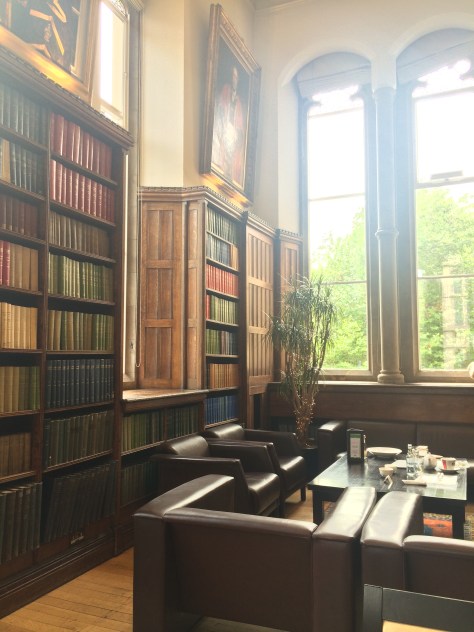It’s the first day of the annual Association of Learning Technology conference here in Manchester. Everything kicks off, after the introductions and welcome, at 10:50 with the first keynote from Steve Wheeler, the marmite of keynote speakers.

The abstract doesn’t give very much away about what Steve is going to talk about so we will have to wait and see what it will all be about. Looking forward to a heated discussion on the Twitter.
After the usual coffee break, popping over to the Museum Café for a decent coffee methinks, it’s a series of parallel sessions. One of the challenges of ALT-C is finding the right session to go to. This isn’t an issue of signage and location, but finding a session, that will inspire, challenge and make you think. There is nothing wrong with going to a session that you know you will enjoy, but sometimes you need to find a session that will challenge your approaches and make you rethinking about how you work.
Often I go to a session that is been delivered by someone I know, whom I have heard before, and I will know deliver an interesting and thought provoking session, but often it just reinforces my thinking and thoughts. This doesn’t mean I won’t go, but you take it for what it is.
I was going to attend Using CMALT as a vehicle for team-building and professional development [990] as I am working with my colleagues at Jisc in helping them (and me) to complete their CMALT. This is less a session that will challenge and inspire, but more of a session to help and support my practice. Alas I found out yesterday it has been cancelled, so time to choose something else.
I quite like the sound of To BYOD or not to BYOD: Factors affecting tutor acceptance of faculty and student mobile devices in their classroom practice [856] as I am currently reflecting on the different models around learners bringing their own devices.
There are generally two reasons behind BYOD, the first is a financial saving, if learners are bringing their own devices then the institution won’t need institutional devices, this reduces capital outlay when refreshing equipment and reduced support costs. The second reason is to create a paradigm shift in the way that learning takes place by taking advantage of the devices learners are bringing to college or university.
In terms of the first reason, the potential savings that can be made need to be offset with the improvements in infrastructure that need to take place to ensure a seamless experience for learners.
The second reason also requires investment, but more investment in ideas how to design a curriculum that takes advantage of BYOD, how to deliver sessions when learners are using their own devices and also designing their assessments.
Similarly I also quite like the thought of attending Sharing stories around the microphone: digital storytelling as a collaborative learning experience [1013] as digital story telling is something I am aware of, but actually know very little about.
Over lunch I will be on the Jisc stand, available to discuss digital capabilities with interested parties.

I am trying to choose between a few sessions, most of which will aid my thoughts in the project I am currently managing for Jisc. This session, Learning technology from the middle out: Breaking down functional tensions and resistances between stakeholders to lead institutional change [913] sounds like it might well be of interest in how they overcame the barriers that institutions face when building digital capability.
Don’t tell Lawrie, but I am also interested in attending Badging the Open [940] as I do feel I need to know more about the practical aspects related to open badges and the impact they can (or may not) have.
At 3:05pm I am going to attend Lawie’s and Donna’s session, Are learning technologies fit for purpose [881]. This is going to be a fun sessions, one that I am sure I am going to enjoy.
This presentation and paper will open up the debate, reporting on discussions and engagement after the original debate and eliciting more viewpoints to further the discussion and encourage delegates to think critically about their existing use of technology. It will also propose a continuum of practice with technology, seeking to not identify a right or wrong answer, but instead provide a series of questions, checks and balances that institutions should consider in their deployment of technology.
At 4:45pm it’s a pity that Bex Ferriday’s session, Mighty Oaks from Little Acorns Grow [803] has been cancelled as Bex’s sessions are bright, loud and fun. So a slightly more serious option will be Harmonious Developments in Learning Technologies; how to align IT and LT cultures. [1009]. This session reminds me of my presentation on the dark side I delivered at FOTE 14 in London.
After a long day it doesn’t stop and I will be off to the Palace Hotel for the Gala Dinner.
So what does your day at ALT-C look like?












